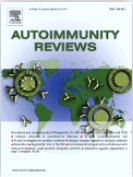 With the widespread prescription and use of statins to decrease morbidity from myocardial infarction and stroke, it has been noted that approximately 5% of all statin users experience muscle pain and weakness during treatment. In a smaller proportion of patients, the myopathy progressed to severe morbidity marked by proximal weakness and severe muscle wasting. The observations that the molecular target of statins, 3-hydroxy-3-methylglutaryl coenzyme A reductase (HMGCR), is an autoantibody target in patients that develop an immune-mediated necrotizing myopathy (IMNM) have been confirmed in a number of studies. However, until today, a multi-center, international study of IMNM, related idiopathic inflammatory myopathies (IIM), other auto-inflammatory conditions and controls has not been published. Accordingly, an international, multi-center study investigated the utility of anti-HMGCR antibodies in the diagnosis of statin-associated IMNM in comparison to different forms of IIM and controls. This study included samples from patients with different forms of IIM (n=1250) and patients with other diseases (n=656) that were collected from twelve sites and tested for anti-HMGCR antibodies by ELISA. This study confirmed that anti-HMGCR autoantibodies, when found in conjunction with statin use, characterize a subset of IIM who are older and have necrosis on muscle biopsy. Taken together, the data to date indicate that testing for anti-HMGCR antibodies is important in the differential diagnosis of IIM and might be considered for future classification criteria.
With the widespread prescription and use of statins to decrease morbidity from myocardial infarction and stroke, it has been noted that approximately 5% of all statin users experience muscle pain and weakness during treatment. In a smaller proportion of patients, the myopathy progressed to severe morbidity marked by proximal weakness and severe muscle wasting. The observations that the molecular target of statins, 3-hydroxy-3-methylglutaryl coenzyme A reductase (HMGCR), is an autoantibody target in patients that develop an immune-mediated necrotizing myopathy (IMNM) have been confirmed in a number of studies. However, until today, a multi-center, international study of IMNM, related idiopathic inflammatory myopathies (IIM), other auto-inflammatory conditions and controls has not been published. Accordingly, an international, multi-center study investigated the utility of anti-HMGCR antibodies in the diagnosis of statin-associated IMNM in comparison to different forms of IIM and controls. This study included samples from patients with different forms of IIM (n=1250) and patients with other diseases (n=656) that were collected from twelve sites and tested for anti-HMGCR antibodies by ELISA. This study confirmed that anti-HMGCR autoantibodies, when found in conjunction with statin use, characterize a subset of IIM who are older and have necrosis on muscle biopsy. Taken together, the data to date indicate that testing for anti-HMGCR antibodies is important in the differential diagnosis of IIM and might be considered for future classification criteria.
